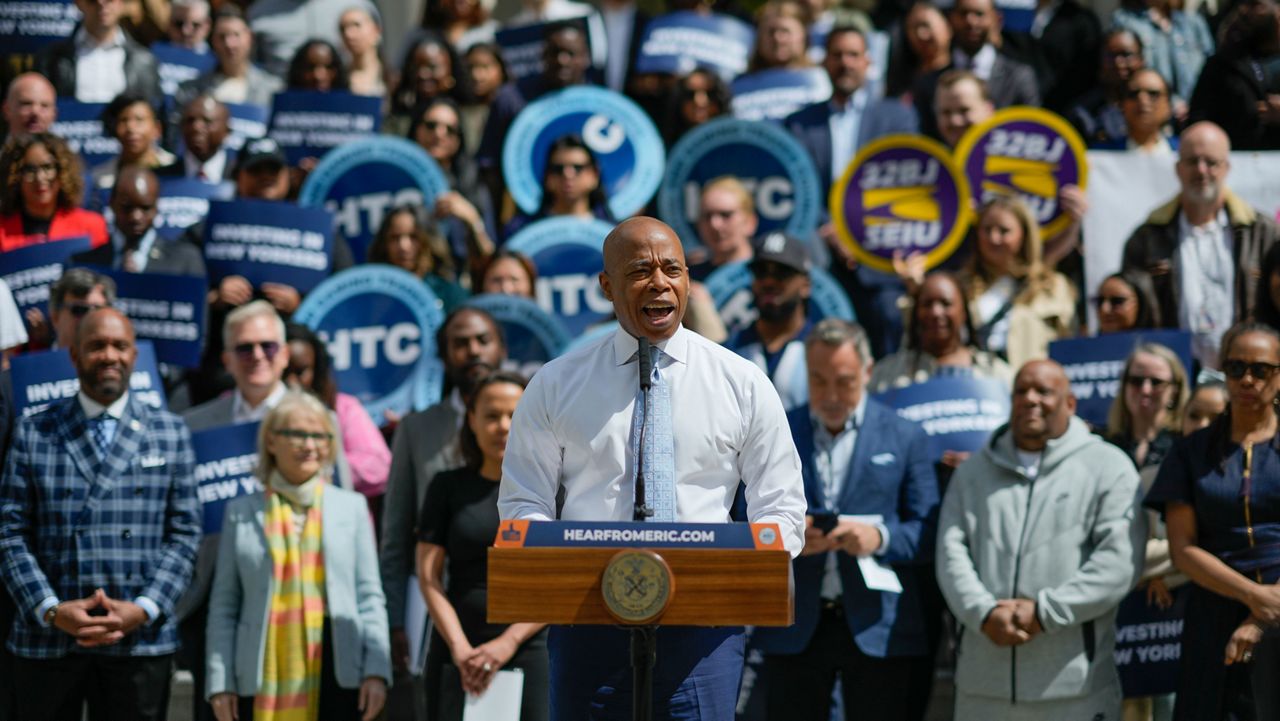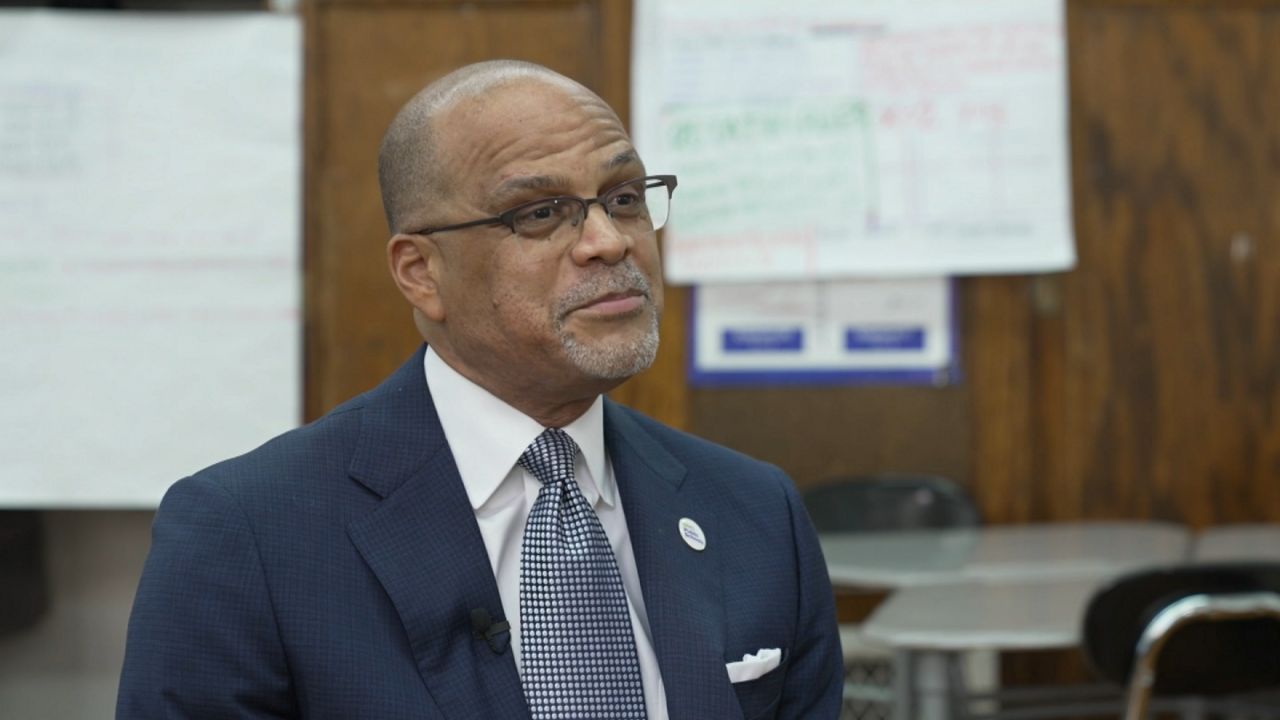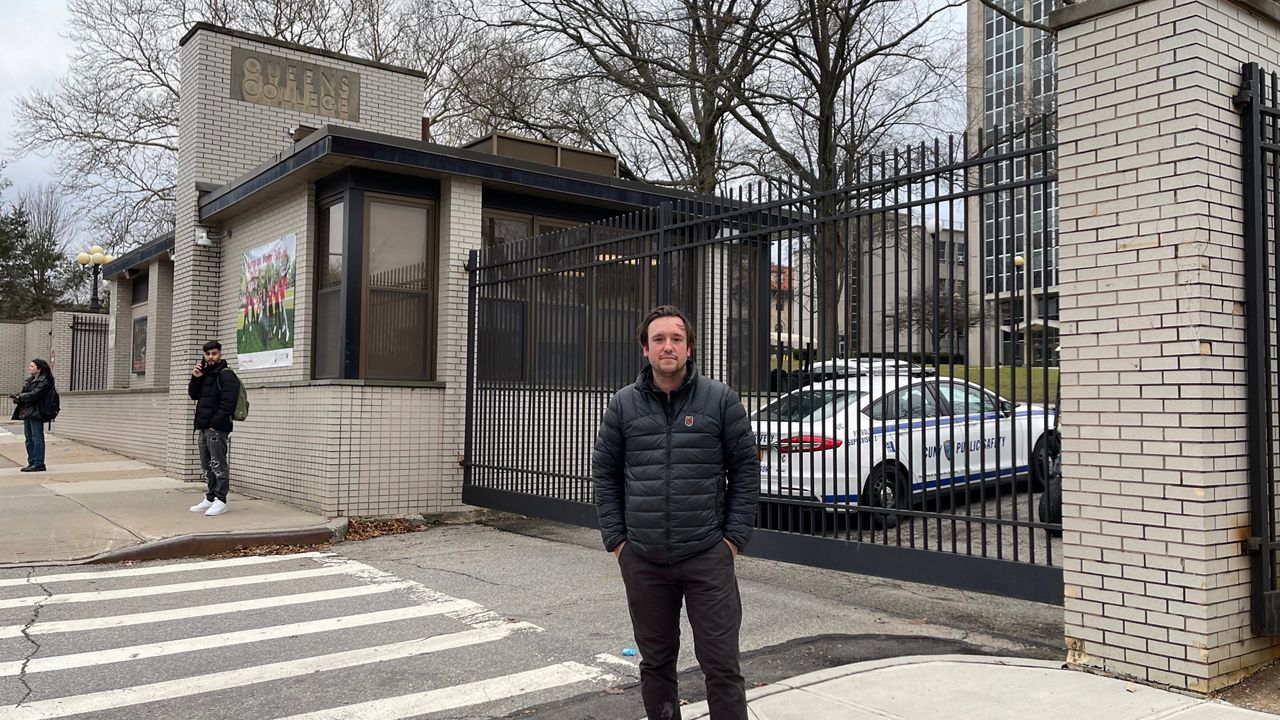Inside the Queens Library branch in Flushing, these students are practicing for an upcoming mock trial.
They’re not law students. In fact, most of these kids aren’t even in high school yet.
Eighth-grader Sita Welt says this youth justice court program has given her a deeper understanding of the legal system — beyond what’s shown on TV.
“We’re hearing all these things on the news about, like, oh, this person went to trial. ‘What does that mean?’ And for those of us who are interested in law, I think it’s really unique to be able to get such an inclusive experience that really helps you understand the basics of law and the basics of criminal justice,” Welt said.
This program is just one facet of the Queens Defender’s outreach. Another is its community court, where low-level teen offenders have their cases heard by a jury of their peers.
Teens who are not in trouble are trained as prosecutors, defense attorneys and juries. An adult serves as a judge.
The community court follows a restorative justice approach, allowing young people to take responsibility for their crimes, and make amends.
“We got to get actual cases from our local precinct, and we worked with kids who were getting in trouble over maybe stealing at the deli or getting into a fight at school,” Alliyah St. Omer, a volunteer, said. “It was really interesting being able to help them not go through the actual system and just give them sanctions instead.”
Penalties can include community service combined with actual internships.
Omer started as a volunteer with the program in high school. Now, a senior in college, she has plans to attend law school and work as a juvenile defense attorney one day. She says programs like this are helpful.
“It’ll be like, a really good outlet for students. Even if they felt like maybe the system is against them, this is their space to be able to come in and explain why and let people speak to them and let them bring out their frustrations, and we could explain to them how things work, and it’s a good use of their time,” Omer said.
According to Queens Defenders, since the community court was launched in 2020 — 60 cases have been diverted to the Queens Defenders court alternate program, while 30 of those cases have been completed with sanctions.
Organizers say the community court has been particularly impactful in Far Rockaway, which is upwards of an hour away from the Queens courthouses by public transportation.
“That allows the citizens within the Far Rockaway who has a difficult time commuting to the mainframe to get their issues, their legal issues here on the Rockaway and alleviate the commute problems that they face,” Oral Hillary, education specialist for Queens Defenders, said.
It also allows young people — with dreams of working as attorneys one day — to make a difference in their neighborhoods.




_CGPKG_Banks_House_Committee_Testimony_CG)

